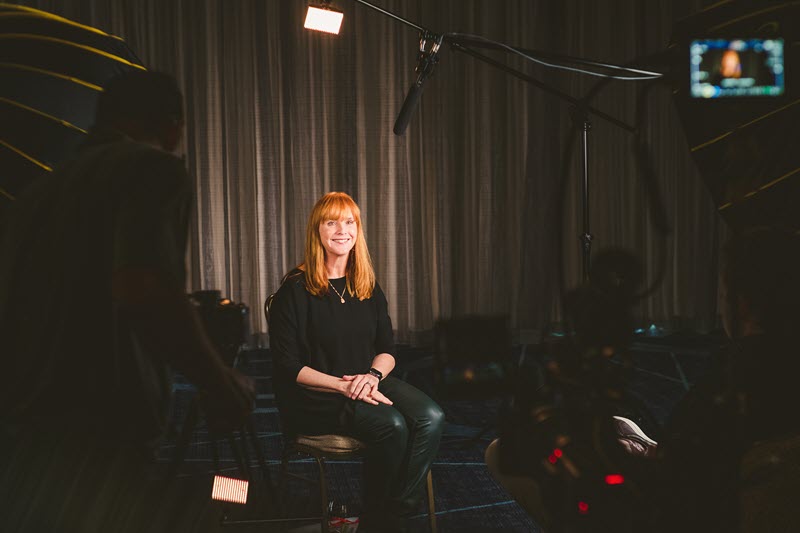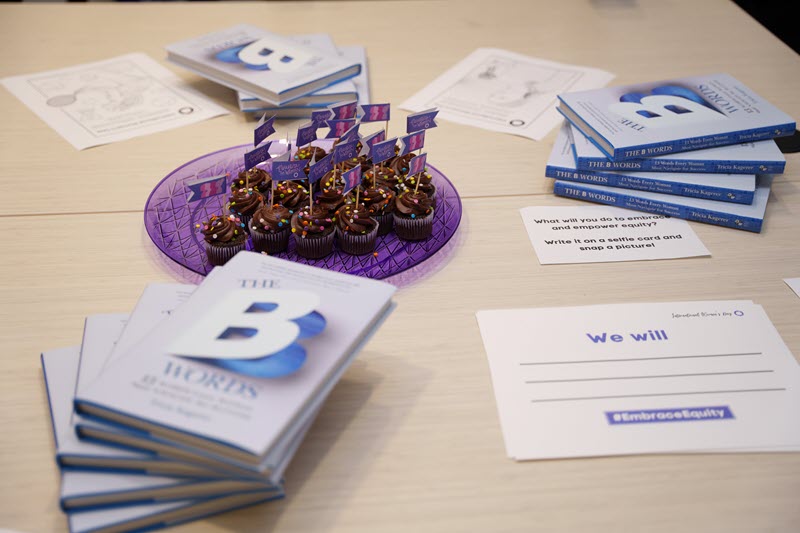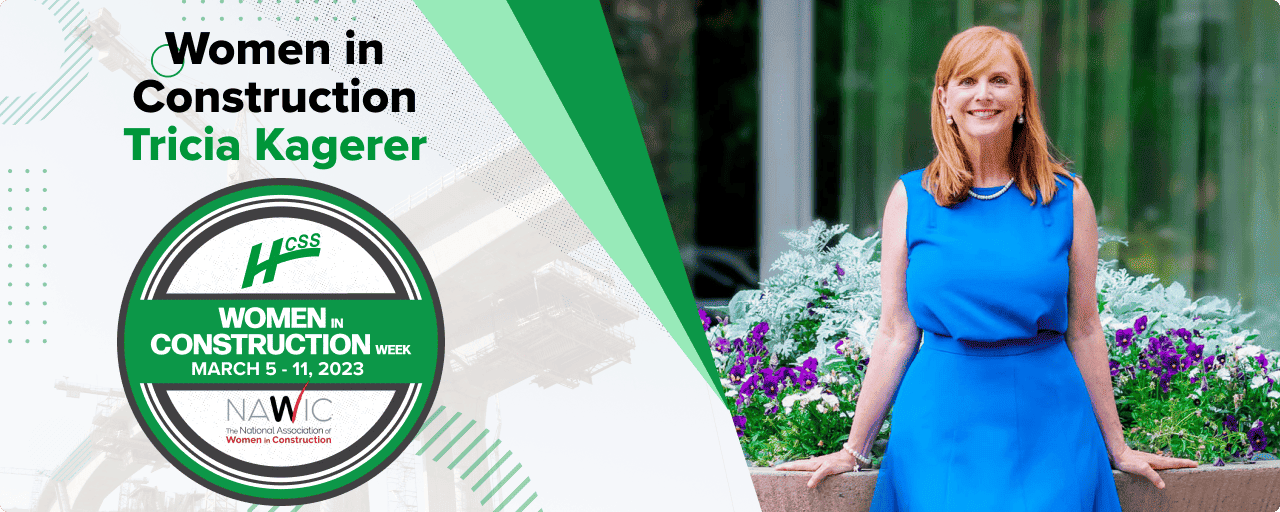Working for a heavy civil construction software company like HCSS, it’s normal to meet employees from all walks of life who’ve embarked on a career in the construction industry. What’s becoming particularly more common though is meeting women in the field, especially strong, exemplary leaders like Tricia Kagerer. She’s spent over 20 years in the industry, working her way up to become the Executive VP of Risk Management for Jordan Foster, one of the largest and most successful construction companies in all of Texas.
In February 2023, Kagerer was invited by HCSS to lead a panel at UGM A and UGM B in the Marriott Marquis Houston called Women in Construction – No, It’s NOT More of the Same Statistics. Having recently written the remarkable book The B Words: 13 Words Women Must Navigate for Success, her panel included women of all ages, all from different backgrounds, telling their stories about how they first got into the industry and what the industry has done for them from a career perspective. The group also discussed many of the things that we need to change going forward to continually grow the industry, as well as the presence of women in construction.
Company Culture Comes First
Since a company like Jordan Foster is all about fostering a culture of doing the right thing, the use of an advanced technology partner is crucial.
"HCSS helped us improve our company culture because the technology provides a platform to tell a story about how we are doing,” Kagerer says. “If we believe certain behaviors and criteria make a difference and are going to improve our bottom line, making us a better contractor, that's all great. The technology helps determine if you are on the right track or not. Then in real-time, you can tweak what isn't working so that you can continue to improve.”
Jordan Foster strongly believes in their role as servant leaders tasked with the enormous responsibility of enriching the lives of all employees.
“Having all of those systems integrated within HCSS helps us determine if we are really making an impact and making a difference…doing so in a way that we're honoring and respecting the people that are closest to the work? Technology is just one more tool that we have to help us be better contractors.”

Changing the Status Quo
If someone owns a construction business, and they're trying to figure out how they can bring more women into the industry, Kagerer recommends their first step be searching within for any limiting belief that women don't belong in the industry.
“Do you have an unconscious bias around the decisions you're making that would prevent women from being there in the first place? That to me is key,” Kagerer advises. “The second thing is maybe trying something different.”
Whether that “something different” is partnering with a women's organization or reaching out to local colleges to support and partner with women in engineering or technology groups, these actions can help combat the current labor shortage in the industry.
“It’s also recruiting a whole new population of students that may not be considering construction, because our country has pretty much said that we need to all have a college degree to be successful. There are a lot of students out there that probably would rather be doing something with their hands in the field. So I think it's about being intentional and putting a plan together.”
One B Word We All Know
If you pick up a copy of Tricia Kagerer’s book and get to a certain chapter, you might be offended or you might be entertained – either way, that only makes her section on “bitches” all the more clever. Kagerer acknowledges the word can be used as a nasty insult, but it can also be considered a compliment. To her, every woman knows the difference based on the delivery.
“The original title was From Babe to Bitch,” Kagerer says of her book. “[When] I was young, and I was working in the construction industry, I'd go out to projects. People were like, ‘What is she doing here?’ As I got better at my profession, I became more confident in what value I brought to the table.”

When Kagerer began writing the book, many of those conversations from over the years came back into the forefront, especially ones about balancing work and family, as well as budgets. She quickly realized the language of money was key to success at home, but more importantly, at work also.
“I learned that if you really wanted to get buy-in at the executive level, you had to tie it all into how that would be profitable for the organization,” she says. “Usually, the right thing to do is often profitable too. You just have to show people the way.”
In addition to budgets, another key focus of Kagerer has been bridges – and not just ones that HCSS customers build in heavy civil. She’s proud of sharing valuable secrets on how men and women can work together more efficiently to build the future – especially in fields such as construction, where it's still a very male-dominated industry.
“I would not be here if it weren't for some really good guys that opened the door for me,” Kagerer adds. “I remember when Darren Woody, CEO of Jordan Foster hired me. He put his neck out there because people did not think a woman should be in the construction industry. I remember hearing that I was going to fail, and I proved them all wrong.”
The reality today is that the percentage of women in the executive C-suites making decisions is still incredibly small. With very few women at this point who can potentially reach back and open the door for other women, that means a conversation must be had with the decision makers that right now are mostly male. It starts with how every boss views a resume on the desk, resisting the urge to be dismissive and assume a woman doesn't belong doing this.
“Look at it again,” Kagerer says of female resumes. “And hire the best candidate for the job without considering gender.”
Embody What a Badass is All About
As Kagerer points out in her book when addressing the topic of badasses, “What is more powerful than a woman who claims her truth and stands in her power?”
It’s vital that every woman know and accept who she is before making a unique contribution to society. This includes carefully analyzing what has held down women in the past in order for the workplace to keep on evolving.
When Kagerer signs off on The B Words, it’s all too easy to picture her holding a toast while all who’ve read the book or listened to her speak raise their glasses: “Here’s to the journey,” she writes. “Hold on tight. Be brave.”
Indeed, that’s something all of us in the construction industry must continue doing.
The B Words is available from both Amazon and Barnes and Noble. To learn more, visit her website www.triciakagerer.com, or follow her on LinkedIn and other social media platforms.




